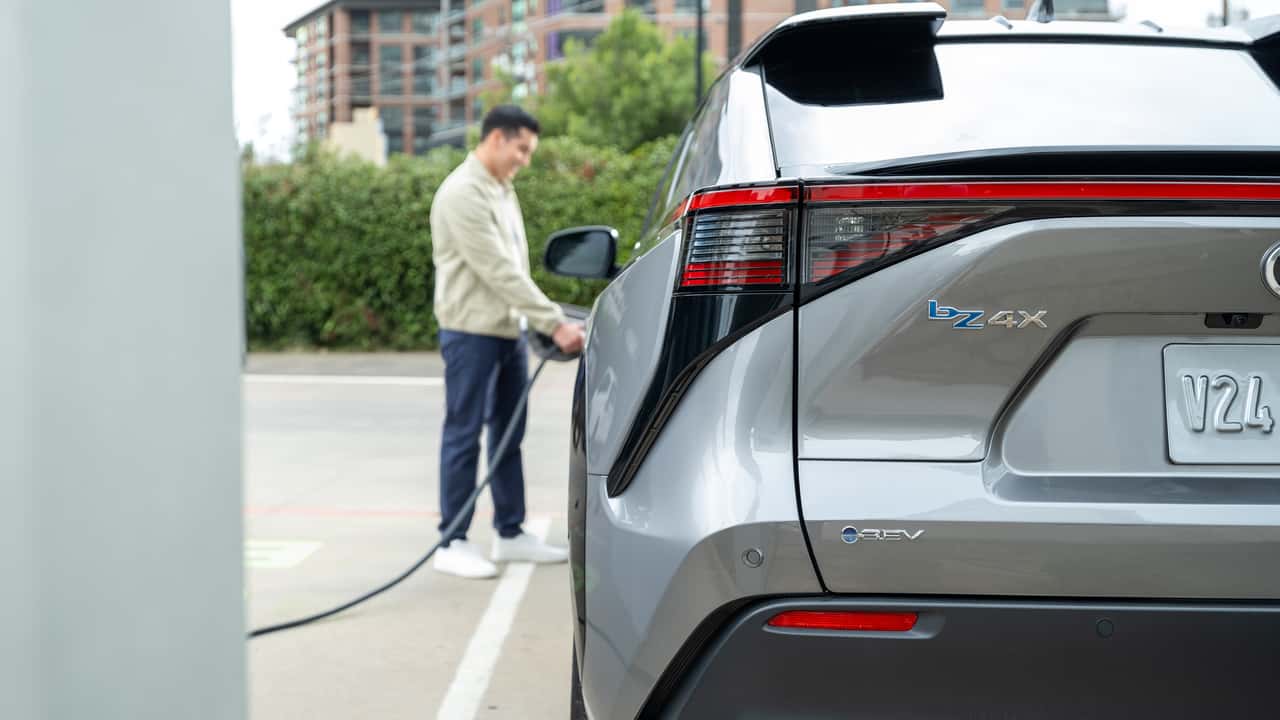Even with a big infusion of federal money in recent years, charging your electric car in public still isn't the easiest thing to do. The Biden Administration has taken some heat for this situation as of late, but today, it announced some welcome news for EV drivers everywhere: an additional $623 million in grants aimed at putting 7,500 more EV charging ports in the ground across 22 states and Puerto Rico.
The funding comes by way of the Charging and Fueling Infrastructure (CFI) Discretionary Grant Program, which arms the Federal Highway Administration with $2.5 billion to spend on alternative fueling stations, including EV chargers, in local communities and along highways. The grants announced on Thursday were the first awarded through the initiative.
Get Fully Charged
Biden's big EV charging plan
President Biden has made it a central mission to combat climate change and get more Americans buying electric cars. Congress has allotted $7.5 billion to build out the country's charging infrastructure.
“This funding will help ensure that EV chargers are accessible, reliable, and convenient for American drivers, while creating jobs in charger manufacturing, installation, and maintenance for American workers,” U.S. Transportation Secretary Pete Buttigieg said in a statement.
The FHA will dole out $311 million to 36 so-called “community” projects building EV charging and hydrogen fueling stations at schools, libraries, public parks and the like. The other $312 million will go toward “corridor” projects along major highways.
President Joe Biden has made transitioning U.S. drivers away from gas-guzzlers one of his central policy missions, touting a goal to make half of the country’s car sales electric by 2030. More charging infrastructure—along with more robust and reliable stations—is badly needed to make that happen.
Importantly, the CFI program invests in slower Level 2 charging plugs in local communities, complementing the national network of Level 3 fast chargers that the White House is funding along interstate highways. (While it tends to be less of a priority than fast charging, there remains a strong need for overnight public charging as well.)
The U.S. government’s $7.5 billion program to blanket the country with 500,000 extra charging stations is only just starting to bear fruit. The first Bipartisan Infrastructure Law-funded charging location came online in December, just over two years after Congress approved the funding. That progress comes on the brink of a presidential election and during a time when electric cars are more politicized than ever.
Republican lawmakers and presidential candidates—including former President Donald Trump—have ramped up their attacks on EVs, bashing them as impractical, expensive cars that Democrats are forcing on the American public. The more progress the White House can make on charging in 2024, the better things will be—both for EV buyers and for Biden's reelection chances.
Contact the author: tim.levin@insideevs.com


